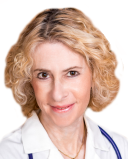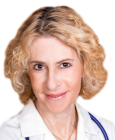Psychopharmacology
My Experience Working for Doctors Without Borders
Part two: Finally managing to get to the Madhu refugee camp
Posted June 10, 2019
As I explained in my previous article, I was trying to get to the Madhu MSF (Medecins Sans Frontieres/ Doctors Without Borders) 27,105 person refugee camp where I was supposed to stay six months. Unfortunately, the fierce fighting between the Sri Lankan army and the Tamil Tigers had prevented me from getting there.
After still not being able to get to the North of the island, I tried to see the army Major-in-Chief. He was a very nice man. He explained that the fighting was too harsh West of Vavuniya. It was too dangerous for us to go through.
We slept in Vavuniya that evening, hoping to go through the following day. Unfortunately, the following morning, we were told that the fights had intensified. “The situation might remain bad for a few days,” the Major in Chief said. This is when we contacted Henry (MSF Colombo) again who told us to drive back to Colombo.
I had mixed feelings about driving back to Colombo. My first reaction was to be disappointed not to be in Madhu yet and sad for Sylvie (the physician I was supposed to replace) who wouldn’t get the relief she expected.
My other reaction was to be very happy: I’ll have time to play tourist and explore the capital city, Colombo.
As we arrived at the MSF house again, I settled in the same bedroom as I was three nights prior; then, I changed clothes and explored Colombo. I did a lot of shopping to soothe my anxieties.
A few days later, at 5:00 am, my alarm clock woke me up. It was time to get up and hit the road up north again. We loaded our MSF vehicle again and our chauffeur drove us north to Anuradhapura. It was a new chauffeur and he got a bit lost. We ended up in Kandy, a very charming little town in the mountain. Finally, I knew where Kandy sugar was coming from… from sugar cane coming from Kandy.
We then headed to Vavuniya where the army told us again that we couldn’t go any further. Déjà vu! This time the major looked really embarrassed and told us he would organize a helicopter transfer for us to Mannar at the extreme north of the island the following day. From Mannar, it would be easier for us to get to Madhu. We accepted.
We went to our favorite hotel in Anuradhapura to spend the night. I had now been in Sri Lanka for nine days and still didn’t know my future workplace.
That night, I wrote a letter to my parents telling them about all the difficulties to get to Madhu. I especially told them not to worry: “Mom and Dad, don’t worry,” I wrote. “Nobody can attack us. If somebody does, either a soldier from the army or a Tamil tiger, it is an international scandal. Consequently, we are extremely safe. We are completely neutral. We are bringing medications for the population and both the army and the Tamil people appreciate our help a lot. We couldn’t be any safer”.
Little did I know how unsafe we were. It was only my second mission in a civil war zone, and I was still very naïve and young.
The following day, as soon as I got up, I heard that the helicopter trip to Mannar had been canceled. In the same hotel, people from the United Nations were staying as part of a mission to bring food to the refugees. They had 11 trucks full of food items (flour, sugar, dry milk) and were on their way to Madhu. We asked them if they could take us. They said, “with pleasure”.
Two hours later we were in one of the 11 united nations’ trucks, on our way to Madhu.
The road was in very bad shape and we had to go very slowly to avoid large holes. It took forever to get to Madhu but finally, after five hours, we got there. I was finally at the place where I would work for six months. As I got out of the truck, I saw a Caucasian thin brunette running towards me. That was Sylvie, the physician I was replacing. She was really happy to see me. She would be able to go back to Paris soon after a debriefing in Colombo and I would take over her work. There was a lot to be done.
As we headed towards the MSF house, I was struck by how hot it was outside. It was over 100 degrees Fahrenheit. The house was small and very hot inside. It was 90 degrees in the bedrooms and there was no electricity which means no fan, no air-conditioned, no light, and no hot water. All those things that you take for granted didn’t exist there.
Sylvie took me to my room which I was going to share with my two nurses. It was a small room with three beds and mosquito nets around each one to protect us from mosquito bites (possibly transmitting malaria).
Fifteen minutes later, Sylvie took me to the “hospital” which was a concrete small building with space for only five beds. It would have to be expanded so that we could hospitalize more people.
Then, we went to the refugee camp where 27,105 people were under tents provided by the United Nations. Some of the refugees had a unique way of saying yes: They would say yes while shaking their head from side to side. The very first time, I got confused because shaking my head from side to side means no for me. But for them, it means yes. After a few days, I got used to it.
Then, we went to the MSF vehicle were Sylvie showed me how to do radio contacts with Colombo. I had to do a radio contact three times a day, once in the morning, once at lunchtime and once in the evening. We were indeed isolated here.
Sylvie then showed me our medication supply, food supply, water supply and the place where we were examining patients every day. She was running short of medications before we arrived but fortunately, we brought a lot of them with us. Then, Sylvie packed her bags and left me in charge.
Suddenly, I was chief on board. I had two MSF French nurses and several Sri Lankan helpers working with me, but I was the only physician! What a huge responsibility!
My routine started. I had to wake up early to do my first radio contact with Colombo at 7:00 am then I had to walk to the hospital for regular clinics every morning from 8:00 am to 12:30 pm. There were a lot of wild dogs fighting along the way. I was hoping they didn’t have rabies.
I would see patients the whole morning. Mornings were good to work because the temperature was still bearable. Then, in the afternoon, I was much hotter and less bearable. I was doing prenatal clinics form 3:00 pm to 6:30 pm every day except Thursdays when I was doing postnatal clinics. I was on-call for the rest of the day and every night.
Patients had mostly upper and lower respiratory tract infections, malaria, diarrhea, conjunctivitis and asthma. They were easy to treat. Snake bites, fox and dog bites were more difficult to treat. I had to hospitalize about 25 persons per month. Very often, I was woken up in the middle of the night.
One night, at 2:00 am, a woman frantically knocked on our door. She was carrying a dying child in her arms. He had diarrhea and was severely dehydrated. He needed IV fluids. We walked him to the hospital in the middle of the night (with a large wooden stick in our hands because there were a lot of wild dogs in the streets) and tried to start an IV drip. Unfortunately, the child was so dehydrated that we couldn’t find any accessible vein. He died ten minutes later. We were not able to revive him.
Another time at 1:00 am, a man violently banged on our door. His face was bleeding heavily with half of his right cheek hanging out. He had just been attacked by a wild dog! I spent a large part of the night at the hospital taking care of him.
Another night, a man came because of a scorpion bite on his foot. There were indeed scorpions there and since most people went barefoot, scorpion bites were always a risk.
Another part of my work was to supervise our vaccinations program which went well until our solar refrigerator died. I had to stop all vaccinations for a month until we got the solar refrigerator repaired.
I also had to supervise the feeding center we created for children and the construction of latrines. We had 250 latrines which were not enough for 27,105 persons. We needed 300 more!
I supervised the chlorination of water reservoirs. Eighty water taps were open and 130 more were ready to be open soon.
In the month of April 1991, we saw 5,200 patients in the regular clinic, did 450 consults in prenatal clinics, examined 291 pregnant women and delivered 82 babies. We had 35 deaths. Among those, 24 were from old age, three were children who died from acute diarrhea, four were children who died from malaria, one from encephalitis, one from meningitis and two from unknown causes.
My personal life was simple. I loved the evenings there. I made my last radio contact with Colombo at 8:00 pm then I went to our bathroom and washed up with my usual bucket of water. Yes, a bucket of water that I would fill up several times and pour over my body because we had no shower and no hot water. We only had a large container of water in which we would dip our little bucket as needed.
I went to bed early since we had no electricity and read in bed by candlelight under my mosquito net while fanning myself to avoid overheating. Every night I fanned myself to sleep. I was between 87 and 95 degrees in the bedroom at night!
Next door to our house were people working for the United Nations. They had a real shower with cold water. I made friends with them and once a month, I would ask them if I could use their shower. Do you know how good a real shower feels (even with cold water) after a month of washing with a bucket? It feels heavenly! We forget about all the things we take for granted.
As days went by, I started being woken up at night, not by sick patients but by the sounds of bombings. Bombings around Madhu were intensifying. Very soon, I heard bombings every day, day and night. They were all around us, mostly North, East and South of us. I went to bed hearing them, woke up hearing them, and I examined patients hearing them. I reported this in my daily radio contacts. I didn’t think much of this.
And then the unthinkable happened…
Read the rest of this story in Chapter 7 of my memoir "The French Stethoscope".
Copyright Chris Gilbert, MD, PhD




